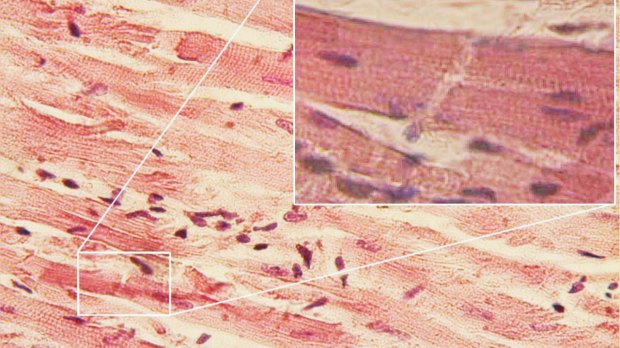 WIKIPEDIA, DR. S. GIROD, ANTON BECKERA protein called growth differentiation factor 11 (GDF11) has been at the center of a tug of war: some scientists have provided evidence that it declines with age, and that returning GDF11 to youthful levels can fix a heart problem in mice. Yet others have found no such relationship, and one group published evidence this year that GDF11 actually increases with age.
WIKIPEDIA, DR. S. GIROD, ANTON BECKERA protein called growth differentiation factor 11 (GDF11) has been at the center of a tug of war: some scientists have provided evidence that it declines with age, and that returning GDF11 to youthful levels can fix a heart problem in mice. Yet others have found no such relationship, and one group published evidence this year that GDF11 actually increases with age.
To figure out why there have been discrepancies in the data, Richard Lee of Harvard Medical School and his colleagues—the team that found GDF11 dropped with age—scrutinized a conflicting study and found the likely explanation to be a case of mistaken identity. Rather than measuring levels of GDF11, Lee’s group found, the other researchers were likely measuring immunoglobulin light chain. “It’s a misinterpretation,” Lee told The Scientist.
Novartis Research Institutes, which led the study that found GDF11 levels rising with age, did not respond to requests for comment. Lee told The Scientist he had pointed out the error to the Novartis team over the summer, but has not heard back.
This week (October 21), the Harvard group showed in Circulation Research that an antibody against ...



















